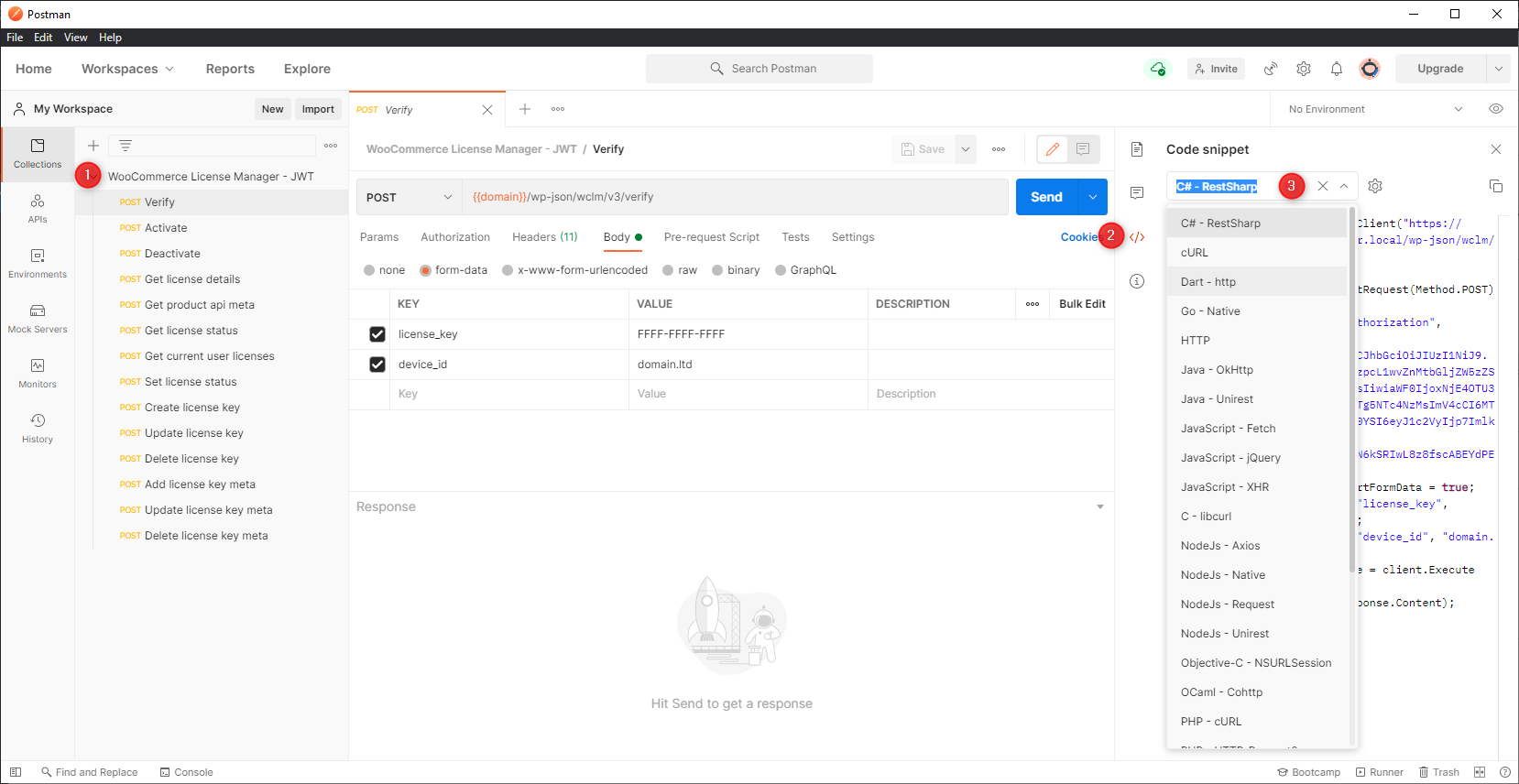

- #Save postman collection how to#
- #Save postman collection install#
- #Save postman collection free#
- #Save postman collection windows#
Otherwise, you will need to re-install or troubleshoot why it is not working. In short, if you don’t see any errors after checking the NodeJS npm version you installed, then it means you are good to proceed.
#Save postman collection windows#

Node.JS will play a very important role to enable us to extract the requests and responses from Postman automatically.
#Save postman collection how to#
How To Check If Node.JS Is Installed And npm Is Working Once you have everything installed in your machine, then we can start. In this article, we will be using Windows Powershell but the steps should work also in command prompt or cmd.
#Save postman collection install#
Download and install node.js (download the latest LTS version here).What Do We Need To Start Automatically Extract Postman Requests and Responses?īefore we go deeper, you need to make sure you have the needed tools before we can programmatically save Postman JSON requests and responses. We will use the HTTP GET method in showing how you can extract the Postman JSON requests and responses programmatically.
#Save postman collection free#
In this article, we will be using a JSON server from JSONPlaceholder that offers free fake APIs for our development and testing. In this article, we will be using a Windows environment – in our case it is Windows 10.Although there’s a way to make it work for XML formats, we will not cover them here. The article’s focus is REST in JSON format.You can programmatically save Postman JSON requests and responses with the use of Node.JS and JavaScript.Having said that, you can still manually extract the results from each executions. Postman provides the raw requests and responses.How Start Collecting Postman’s Requests and Responses.Integrating Node.JS Script To Postman Collection.Installation of npm Dependencies For Capturing The Postman Requests and Responses.How To Check If Node.JS Is Installed And npm Is Working.What Do We Need To Start Automatically Extract Postman Requests and Responses?.The unset can be defined with the above variable instances as per their scope, e.g., pm.environment. unset: This method can be used for removing a set variable.pm.variables: This defines the local variable with local/temporary scope, e.g., pm.t(“variable_key”, “variable_value”).pm.environment: This can be used for defining an environment variable with scope as current environment, e.g., pm.t(“variable_key”, “variable_value”).pm.collectionVariables: We can define a variable with scope as ‘collection' with this method, e.g., pm.t(“variable_key”, “variable_value”).pm.globals: This method is used for defining the global variables in a request script, e.g., pm.t(“variable_key”, “variable_value”).Similar to defining variables in a collection, an environment, or globally, we can also set variables programmatically in our request scripts.Īll of these methods take in ( variable_key, variable_value) as input: Once the execution completes, they are no longer available. They have scope only till the current request or collection. Local variables: These variables are also known as temporary variables that are only accessible through a request script.They have current values that don't persist after a request or collection executes. We can extract this from a CSV or a JSON file. Data variables: These types of variables are external and define the data sets while running collections with the Collection Runner.They change along with the change in the environment we are working on like local environment, staging or the production environment. Environment variables: These variables let us scope the work as per the different environments.Also, they don't change based on the selected environment. They are available across all the requests within a collection. Collection variables: These variables are accessible only inside a certain collection.They can be used anywhere among multiple requests and collections within the workspace. Global variables: These are accessible throughout the workspace and have the broadest scope in Postman.Below are the variable scopes defined from the broadest to the narrowest area covered: There are multiple scopes that let us process the development and testing of API in various environments with different values.


 0 kommentar(er)
0 kommentar(er)
